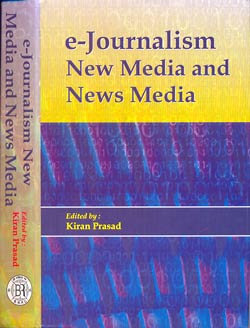Canberra.
The final ANZCA 2010 paper for today is presented by Felicity Biggins and Christina Koutsoukos, whose focus is on journalism education. There have long been calls for journalists to adapt to a changing media environment in which anyone can be a journalist - so what is the value of journalism education? Online, citizens can participate in unprecedented ways - and are sometimes called citizen journalists, as opposed to 'professional' journalists - in the case of major events, anyone with a mobile phone can become a journalist. If the value of journalism comes from the underlying value of journalistic activity, that value is now near zero, some contend.

 First, with a chapter on "
First, with a chapter on "










